On-Demand Outsourcing BPO Services for Healthcare Providers With 24/7 Coverage!
Save up to 70% on staffing costs!
Browse Specialty Staffing Services
Can Outsourcing Help Doctors Stay HIPAA Compliant With Less Stress?
Healthcare professionals today balance the demands of patient care with the burden of administrative compliance. One of the most stressful responsibilities for physicians and staff is maintaining HIPAA compliance. Failure to comply can lead to severe penalties, data breaches, and reputational harm. For many practices, outsourcing HIPAA-related responsibilities provides a practical solution—helping doctors reduce stress, ensure compliance, and focus on delivering exceptional patient care. Understanding HIPAA Compliance Outsourcing HIPAA compliance outsourcing involves engaging external experts or specialized staff to manage
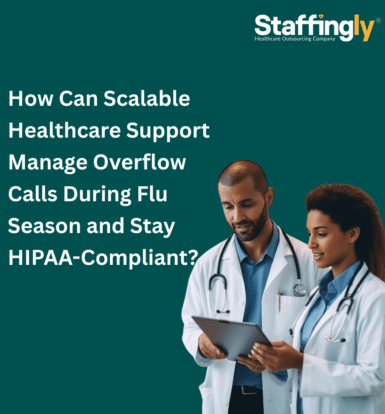
How Can Scalable Healthcare Support Manage Overflow Calls During Flu Season and Stay HIPAA-Compliant?
The flu season often brings a surge of healthcare-related calls, challenging healthcare providers to manage increased patient inquiries while maintaining the quality of care. During these peak times, managing overflow calls efficiently is crucial for both patient satisfaction and operational efficiency. To ensure smooth operations, healthcare providers are increasingly turning to scalable healthcare support systems that can handle these call surges without compromising on quality or security. In addition to managing overflow calls, healthcare facilities must also adhere to HIPAA
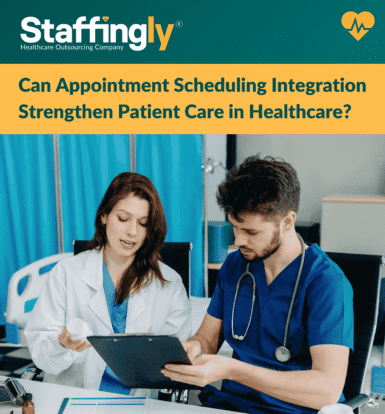
Can Appointment Scheduling Integration Strengthen Patient Care in Healthcare?
In the competitive world of US healthcare, patient care depends on the ability to provide fast, accurate, and seamless access to services. One of the most effective ways healthcare organizations are achieving this is through real-time appointment scheduling integration. By connecting booking systems directly with electronic health records (EHR), practice management software, and patient communication platforms, providers can transform both operational efficiency and the patient experience. Real-Time Scheduling for Better Patient Care Real-time scheduling integration ensures that when a patient
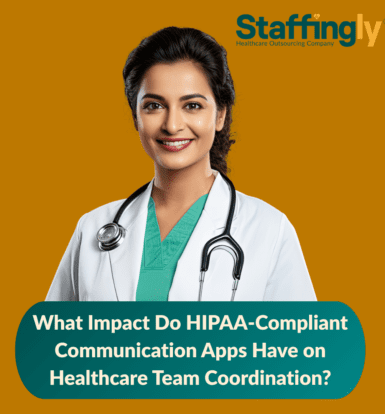
What Impact Do HIPAA-Compliant Communication Apps Have on Healthcare Team Coordination?
In the evolving landscape of U.S. healthcare, the integration of HIPAA-compliant messaging apps has become pivotal in enhancing communication and streamlining workflows. These platforms not only ensure the confidentiality of Protected Health Information (PHI) but also facilitate real-time collaboration among healthcare professionals. Traditional communication methods, such as phone calls and faxes, often lead to delays and miscommunications. HIPAA-compliant messaging apps offer secure, instant communication channels, allowing healthcare providers to share critical information promptly. For instance, platforms like TigerConnect and OhMD
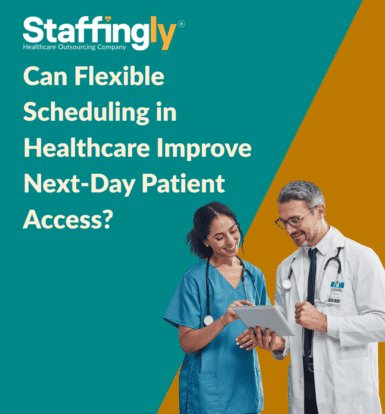
Can Flexible Scheduling in Healthcare Improve Next-Day Patient Access?
For years, healthcare scheduling followed a predictable pattern: fixed office hours, limited appointment slots, and little room for last-minute changes. But today’s patients expect faster, more convenient access to care. They want to book after hours, be seen sooner, and avoid waiting days for an available time. That’s where flexible scheduling comes in giving patients more ways to book and making it possible for hospitals and clinics to deliver next-day appointments, even for after-hours calls. Why Rigid Scheduling Hurts Access
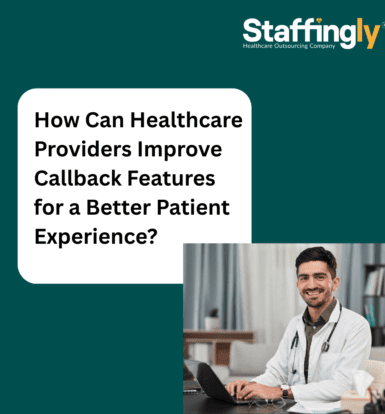
How Can Healthcare Providers Improve Callback Features for a Better Patient Experience?
In the fast-paced world of U.S. healthcare, one of the greatest challenges is managing patient calls effectively while maintaining high satisfaction levels. Implementing HIPAA-compliant patient callback options in healthcare call centers offers a solution that not only reduces perceived wait times but also lowers call abandonment rates and enhances patient satisfaction. This approach, commonly known as callback-in-queue, allows patients to maintain their position in the queue without being forced to remain on hold. When an agent becomes available, the system

Hospital Call Analytics: Where We’re Losing Patient Calls ?
In healthcare, every missed call can mean a missed appointment, a frustrated patient, or lost revenue. For years, we knew calls were slipping through the cracks, but without hard data, it was impossible to measure the impact or fix the problem. Now, with real-time analytics dashboards, we finally have the visibility we need. We can see exactly when and why calls go unanswered, spot patterns, and adjust staffing before it costs us business. Before and After: From Guesswork to Data-Driven

How a Calibrated IVR Improved US Healthcare Calls ?
In busy US healthcare call centers, misdirected calls waste staff time, frustrate patients, and delay care. A poorly designed Interactive Voice Response (IVR) system can create bottlenecks, but a well-calibrated one can transform call flow. At Staffingly, Inc., we’ve helped healthcare providers design HIPAA-compliant IVR menus that send patients exactly where they need to go — without unnecessary transfers. One call center manager shared, “Since implementing the new IVR setup, transfers have dropped by 50%. Patients reach the right department
 Book a Demo to Build Your Team Today!
Book a Demo to Build Your Team Today!


 Read Case Studies
Read Case Studies 



 Virtual Medical Assistants
Virtual Medical Assistants



